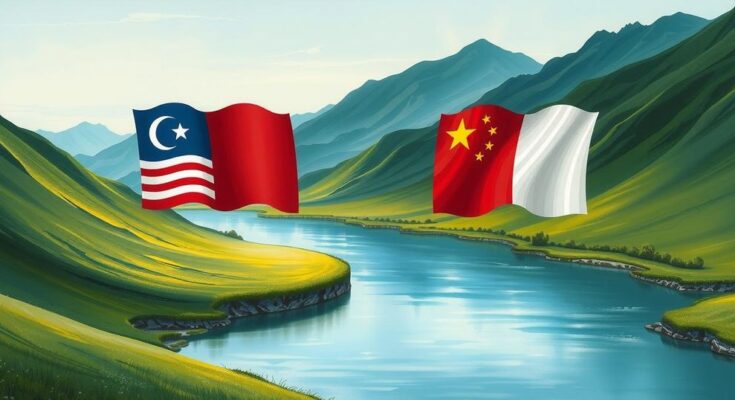Guyana has sought intervention from the ICJ following Venezuela’s announcement to hold elections in the disputed Essequibo region. The region has been administered by Guyana for over a century, and recent claims by Venezuela have heightened tensions, especially after oil reserves were discovered. The ICJ previously instructed Venezuela to refrain from actions related to Essequibo, which Guyana argues is a violation.
On Thursday, Guyana formally appealed to the International Court of Justice (ICJ) in response to Venezuela’s announcement of elections in the contested Essequibo region, an area both nations claim. Venezuela is scheduled to vote on May 25 for new governors, including positions in Essequibo, a territory under Guyana’s administration for over a century. This follows a non-binding referendum in December 2023, where 95 percent of voters purportedly supported Venezuela’s territorial claim.
Venezuela’s parliament previously enacted a law to designate Essequibo as the 24th state of Venezuela, a move that Guyana and several nations have denounced as invalid. In its legal pursuit, Guyana is seeking provisional measures from the ICJ to prevent Venezuela from conducting any actions that could affect Guyana’s sovereign territory, specifically referencing the Essequibo area, which constitutes two-thirds of its land and supports approximately 125,000 of its citizens.
Guyana, stemming from its historical arbitration in 1899, asserts that its boundaries are legitimate and recognized. Conversely, Venezuela argues that the Essequibo River serves as a natural boundary, a claim traced back to 1777. The dispute intensified in 2015 following the discovery of significant crude oil reserves in Essequibo by ExxonMobil, leading to Guyana’s auction of oil blocks in the region, which elevated its oil reserves to the highest per capita globally.
In December 2023, the ICJ had already instructed Venezuela to cease any actions concerning the territory, deeming the election plans as an egregious violation of this directive. Consequently, Guyana’s foreign ministry has urged the court to expedite a hearing on this urgent matter. Additionally, recent tensions emerged when the United States condemned Venezuelan naval operations that appeared to threaten an ExxonMobil unit within the maritime territory claimed by Guyana.
Guyana’s appeal to the ICJ represents a crucial legal challenge stemming from Venezuela’s controversial electoral plans in the disputed Essequibo region. The situation highlights the historical complexities of territorial claims in this area and the impact of recent oil discoveries on international relations. As diplomatic tensions escalate, the response from the ICJ and the reactions of other nations will play a pivotal role in the outcome of this dispute.
Original Source: www.wyomingnewsnow.tv




